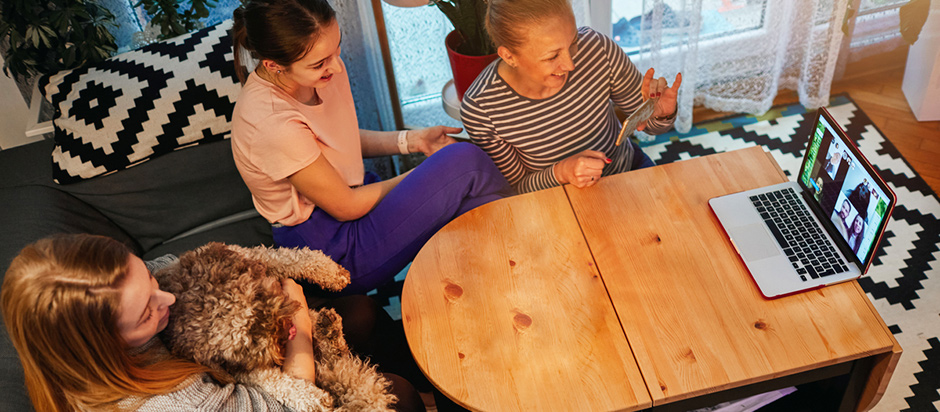This year’s holiday season will likely be different than in years past. Yet, with a bit of reflection, planning, creative problem-solving, and open communication, it is possible to still make it wonderful. Try these seven tips:
1. Acknowledge your feelings
You may be feeling anxious, disappointed, angry, or sad about having to change plans, forego travel, or miss special celebrations and people. It is normal to feel sadness and a sense of loss. You may be worrying about your children and sad that they are missing special occasions. Perhaps you feel a sense of relief that you will forego activities and have a quieter season than usual. Whatever you are feeling, it is good to take the time to reflect, with the understanding that there is no right or wrong way to feel. Whether you are feeling disappointment, sadness, frustration, fear of loneliness, or even relief, it is okay.
2. Share your feelings with others
It is not helpful to hold feelings in. In fact, this can actually create more stress. Find a trusted friend or family member to speak with and reach out with a phone call, text, or socially distanced meeting and share your feelings. In the process, you will likely also give others the opportunity to express similar concerns about the holiday season. We all need extra opportunities to stay connected during these more isolated times. Reaching out to chat is a great way to support one another.
3. Focus your attention before planning
Think about the best parts of the holidays that have been the most meaningful in the past, and then assess what would be most valuable for you and your family this year. Choose one or two of the most important values of the season. Focus on those and start to consider how you can create new traditions or carry out new versions of old traditions that match what is most important to you during this time of year. Your priorities might include volunteering, connecting via games, gift exchanges, cooking, or sending out greeting cards. Starting to plan now will enable you to manage the most important activities within the current constraints. You might even end creating up a new activity that will in time become a cherished family tradition.
4. Plan for safe and realistic connection
Connection doesn’t have to stop, even if families are meeting virtually, instead of in person. Some ideas for connecting remotely include:
-
- Share photos from past year with each other
- Have an online game or trivia night
- Purchase individual gingerbread houses (or similar craft projects) and decorate them “together” via Zoom
- Have a virtual group Menorah lighting, dreidel games, or storytelling time for Hannukah.
- Cook a special family recipe or a new dish together
5. Communicate and make agreements with family
Reach out and start openly discussing plans with family members. Get very specific about plans, parameters for gatherings, expectations, and consenting to how, where, and what you will be doing. This holiday season, we will be faced with so many new decisions, and family members will likely have different ideas and priorities. Get very specific about how things can work for you and communicate up-front with family and friends to reach shared agreements.
6. ENJOY!
Whatever you choose to do for the holidays this year, prepare yourself to take a break from the stressors of day-to-day life and commit to making the best of the situation so you can really appreciate the season.
7. Consider getting support
If you are struggling to adjust, or feel depressed, overly stressed, or overwhelmed, consider seeking professional help. Our staff at the Center for Children and Youth is here to support you with counseling services, parent consultations, and support for everything from everyday challenges to complex mental health issues, with expert clinical care and a wide range of specialized services. Our team of professionals ensures that adults and children can live and learn in supportive environments. We invite you to explore, learn, and join our community.
By Robyn Bloom, LMFT, Marriage and Family Therapist at the Center for Children and Youth



